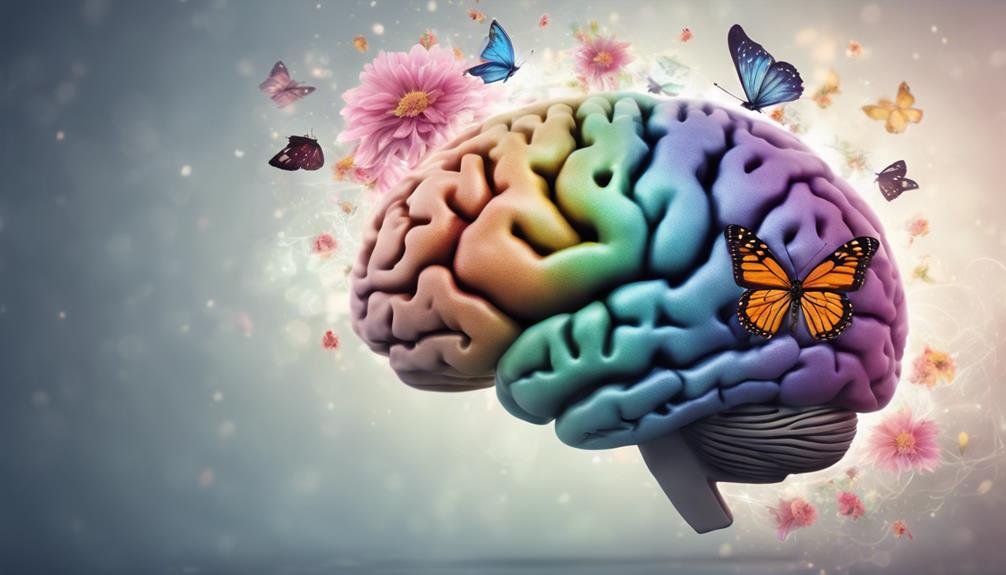You've likely encountered those piercing "Love Me or Leave Me" quotes at some point, haven't you? They strike a chord, challenging you to evaluate the depth of your personal relationships and the boundaries you set. These words aren't just phrases; they reflect a moment of decision, a crossroad where you determine your worth and the value you place on mutual respect and love. Imagine the empowerment that comes from choosing self-respect over mere companionship. What might happen if you took these quotes to heart? How would your relationships transform? Let's explore the potential ripple effects in your life.
Key Takeaways
- Quotes highlight critical moments of decision in relationships, demanding a choice between commitment and separation.
- They provoke deep emotional responses, resonating with personal experiences of love and ultimatums.
- Often used in media to heighten drama and force characters to confront their true feelings and values.
- Shared widely on social media, these quotes connect individuals facing similar relational dilemmas.
- Serve as tools for self-reflection and personal growth, encouraging individuals to assess their relationship dynamics.
Origins of the Ultimatum

Tracing back to ancient legal and social practices, the concept of an ultimatum has long shaped negotiations and decisions. You might find it fascinating that the use of ultimatums isn't just a modern-day phenomenon. In fact, they've been employed since the times when tribal leaders and ancient civilizations used them as decisive tools for conflict resolution and diplomacy.
Imagine you're a leader in ancient Rome, where ultimatums were a standard part of statecraft. You'd send a message to a rival city, demanding compliance or facing war. This wasn't just about power; it was a strategic move to avoid prolonged conflict while asserting dominance. Similarly, in medieval Europe, kings and queens would issue ultimatums to rebellious nobles to swear fealty or face severe repercussions.
These historical contexts reveal how ultimatums have been pivotal in shaping outcomes, not merely through coercion, but as part of calculated strategies to maintain order and hierarchy. You're seeing that the roots of this practice reach deep into the fabric of human interaction, where the choice presented often determines the course of personal and collective futures.
Literary Expressions
While ultimatums often shaped historical actions, they've also found a vivid presence in literature, where authors explore the dramatic potential of decisive moments. You've likely encountered these tense exchanges in classic novels, where characters must make life-altering decisions. Think about Elizabeth Bennet in Jane Austen's *Pride and Prejudice*, challenged to reconcile her feelings for Mr. Darcy against the pressures of societal expectations and personal pride. Austen masterfully uses this confrontation to heighten the emotional stakes.
You can also see this dynamic in Charles Dickens' *Great Expectations*. Pip's ultimatum from Estella and Miss Havisham forces him to confront his own values and aspirations, weaving a complex web of choice and consequence that pushes you to question how much of our path is shaped by others' demands.
In contemporary literature, J.K. Rowling employs ultimatums in the *Harry Potter* series to test her characters' moral fiber. You witness Harry facing choices that pit his desire for knowledge against his need for safety, each decision serving as a stepping stone in his journey towards adulthood.
These literary moments aren't just about the drama; they're mirrors reflecting the tough choices you face in your own life, reminding you that the clock ticks on every decision you make.
Cinematic Impact

In cinema, ultimatums create pivotal moments that challenge characters and captivate audiences, making you question what you'd do in their shoes. These decisive moments often shape the narrative and define the character's path, pushing the story to its emotional peaks. You become deeply invested as you watch these characters confront their turning points with a simple yet profound choice: love me or leave me.
Here's how these cinematic ultimatums impact you and the film:
- Intensity: They inject a burst of significance into the plot, ramping up the drama and tension. You're on the edge of your seat, eager to see which path the character chooses.
- Character Development: Ultimatums force characters to reveal their true colors and priorities. You gain deep insights into their fears, desires, and moral compass.
- Audience Engagement: As you align yourself with the character's dilemma, you're more than just a spectator. You're emotionally involved, rooting for outcomes that resonate with your own values.
- Plot Advancement: These moments often act as catalysts that propel the story forward, leading to unexpected twists and resolutions.
As you watch these scenes unfold, you can't help but ponder the weight of their choices, reflecting on how you might respond under similar circumstances.
Musical Interpretations
You'll find that music deeply enhances these cinematic ultimatums, adding layers of emotion and complexity to each scene. Each note and melody weaves into the dialogue, transforming raw words into a poignant experience. Imagine a scene where the protagonist demands 'Love me or leave me!' The intensity of a swelling orchestra or the haunting simplicity of a solo piano can grip your heart, making you feel the weight of the moment.
As you dive deeper into these films, you'll notice how music isn't just a background element; it's a narrative force. It cues you into the inner turmoil or joy the characters face. When the soundtrack swells or softens, it's guiding your emotions, shaping your perceptions without a single word. You're not just observing a character's journey; you're emotionally invested in it.
Think about the last time a film's score lingered in your mind long after the credits rolled. Wasn't it often during a pivotal scene? That's the power of musical interpretation. It turns lines from the script into memorable quotes that echo beyond the screen, resonating with your personal experiences and memories. So next time, listen closely. The music is telling you just as much as the characters are.
Celebrity Insights

Stars often share personal connections to the powerful lines they deliver, revealing how deeply a script can resonate with their own experiences. You might be surprised to learn the real emotions behind those memorable quotes from your favorite films. When a star says a line that echoes their personal life, it isn't just acting; it's living. This authenticity can make the performance unforgettable.
Here are some insights into how quotes have personally affected celebrities:
- Emma Stone once mentioned that her line, 'I can't let you be the one that got away,' in a romantic drama, mirrored her own fears of losing someone special in real life.
- Will Smith related deeply to his character's struggles in 'The Pursuit of Happyness,' saying the line, 'Don't ever let somebody tell you… You can't do something,' which inspired him during his early career challenges.
- Jennifer Lawrence found her role in 'Silver Linings Playbook' therapeutic, especially the line, 'You have to do everything you can to get what you want,' paralleling her determination in her acting career.
- Tom Hanks shared that saying, 'It's supposed to be hard. If it wasn't hard, everyone would do it,' in a movie about overcoming challenges, motivated him during tough personal times.
These insights show you how art imitates life, making these performances resonate with authenticity and power.
Cultural Variations
When exploring quotes from 'Love Me or Leave Me,' it's crucial to take into account how cultural differences shape the interpretation and impact of these lines across various audiences. What resonates deeply in one culture mightn't strike the same chord in another. For instance, a quote expressing individualistic pursuit of happiness might empower someone in a Western society but could conflict with the collective values prevalent in many Eastern communities, where familial obligations and community harmony often take precedence.
You've got to contemplate how certain expressions of love and commitment are viewed globally. In some cultures, declarations of independence in a relationship are celebrated, seen as a sign of personal strength. However, in others, such self-focused sentiments might be perceived as selfish or indicative of a lack of commitment to the union.
Also, reflect on the language nuances. The same English phrase can carry different weights and implications when translated. A playful, sarcastic remark in English might come off as disrespectful or confusing in another language if the cultural context and humor don't translate well.
Psychological Perspectives

Exploring the psychological perspectives in 'Love Me or Leave Me' quotes reveals how they can profoundly affect individual attitudes and relationships. When you investigate these quotes, you're not just reading words; you're peering into the window of human emotions and their complexities. These phrases often encapsulate the intense feelings of affection and the pain of rejection, shaping how you see yourself and interact with others.
Here's how these quotes can influence you psychologically:
- Self-Reflection: They prompt you to ponder on your personal experiences and relationships, possibly uncovering hidden feelings or resolving past grievances.
- Emotional Resilience: By resonating with your struggles, these quotes can help you develop a stronger emotional resilience, teaching you that you're not alone in your feelings.
- Relationship Dynamics: Understanding the emotional depth in these quotes can lead to a deeper understanding of your relationship dynamics, helping you navigate the complexities of love and attachment.
- Motivation: Sometimes, these powerful words serve as a catalyst for change, motivating you to improve or reassess your current relationships or personal growth journey.
As you engage with these quotes, remember they're not just sayings but reflections of real human emotions that can guide you through life's relational challenges.
Social Media Trends
Now, let's look at how 'Love Me or Leave Me' quotes have permeated social media trends, influencing online interactions and discussions. You've probably noticed these emotionally charged quotes popping up across your feeds. They're not just simple sayings; they carry a weight that resonates deeply with many users. You see them captioned under Instagram selfies, tweeted during late-night thoughts, and even used as TikTok video themes.
These quotes often serve as a form of digital expression, helping you and others articulate complex feelings about relationships and self-worth. They're relatable, they're poignant, and they're shareable, which makes them perfect for the fast-paced, meme-friendly world of social media. As you scroll through your timeline, you might find these quotes fostering a sense of community among those facing similar relationship dilemmas or personal struggles.
Moreover, they spark conversations. A single quote can lead to hundreds of comments, offering support, advice, or just a simple 'felt that.' It's fascinating to see how a few words can unite strangers across the globe, creating virtual support networks that span continents. In this way, 'Love Me or Leave Me' quotes aren't just passing trends; they're a powerful tool for connection and dialogue in the digital age.
Personal Stories

You've likely encountered someone's personal story on social media, where 'Love Me or Leave Me' quotes deeply resonated with their experiences, sparking a heartfelt post. These quotes often touch on themes of self-acceptance, resilience, and the courage to let go. Perhaps you've felt a tug at your heartstrings as you scrolled through these stories, seeing the raw honesty in someone's decision to choose self-love over staying in a less-than-fulfilling relationship.
Personal stories shared with such quotes can mirror your own experiences or offer new perspectives on handling emotional dilemmas. Here are some common themes you might recognize:
- Self-Discovery: Individuals recount moments of clarity about their worth and what they deserve in love and life.
- Empowerment: Stories often highlight a journey from feeling powerless to reclaiming control over personal happiness.
- Heartbreak: Many share their struggles through the pain of letting go and the insights gained.
- Renewal: Accounts of overcoming adversity to find peace and contentment within themselves.
Each narrative serves as a reminder that you're not alone in your feelings and that it's okay to walk away from situations that don't bring joy. These stories, paired with poignant quotes, often inspire others to reflect and perhaps share their own.
Conclusion
You've explored the compelling depths of 'Love Me or Leave Me' quotes, from their dramatic origins to their widespread cultural influence.
These phrases aren't just about ultimatums; they're about affirming your worth and demanding respect in relationships.
Remember, it's essential to honor your self-worth and set boundaries that protect your emotional well-being.
Let these powerful words inspire you to make choices that truly reflect your values and aspirations in love and life.
